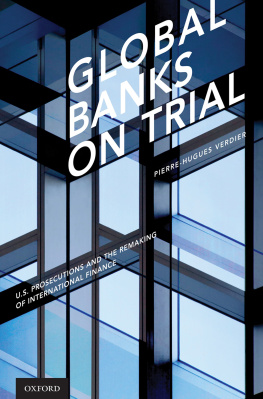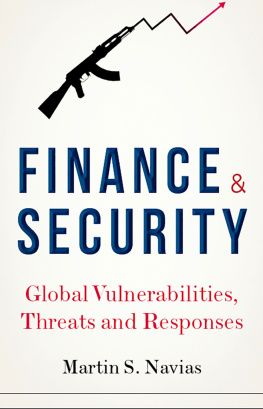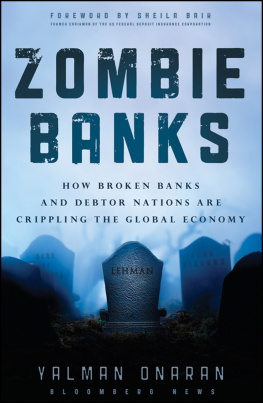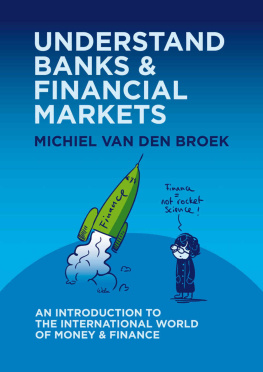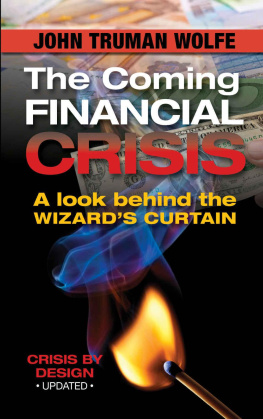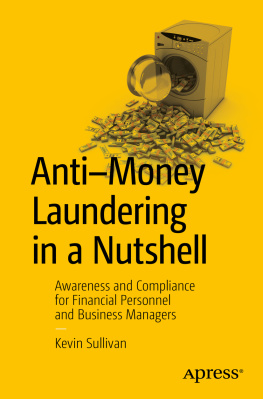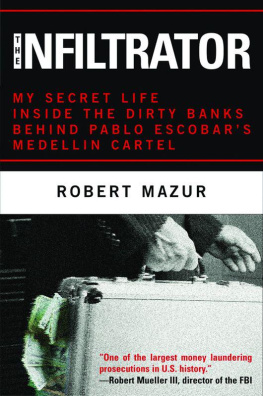Global Banks on Trial

Oxford University Press is a department of the University of Oxford. It furthers the Universitys objective of excellence in research, scholarship, and education by publishing worldwide. Oxford is a registered trademark of Oxford University Press in the UK and certain other countries.
Published in the United States of America by Oxford University Press
198 Madison Avenue, New York, NY 10016, United States of America.
Pierre-Hugues Verdier 2020
All rights reserved. No part of this publication may be reproduced, stored in a retrieval system, or transmitted, in any form or by any means, without the prior permission in writing of Oxford University Press, or as expressly permitted by law, by license, or under terms agreed with the appropriate reproduction rights organization. Inquiries concerning reproduction outside the scope of the above should be sent to the Rights Department, Oxford University Press, at the address above.
You must not circulate this work in any other form and you must impose this same condition on any acquirer.
Library of Congress Cataloging-in-Publication Data
Names: Verdier, Pierre-Hugues, author.
Title: Global banks on trial : U.S. prosecutions and the remaking of international finance /
Pierre-Hugues Verdier.
Description: New York : Oxford University Press, 2020. | Includes bibliographical references and
index.
Identifiers: LCCN 2020001399 | ISBN 9780190675776 (hardback) | ISBN 9780190675806 |
ISBN 9780190675783 (pdf) | ISBN 9780190675790 (epub)
Subjects: LCSH: Banking lawUnited StatesCriminal provisions. | Banks and banking,
InternationalLaw and legislationUnited StatesCriminal provisions. | Criminal jurisdiction
United States.
Classification: LCC KF9350 .V47 2020 | DDC 345.73/0268dc23
LC record available at https://lccn.loc.gov/2020001399
Note to Readers
This publication is designed to provide accurate and authoritative information in regard to the subject matter covered. It is based upon sources believed to be accurate and reliable and is intended to be current as of the time it was written. It is sold with the understanding that the publisher is not engaged in rendering legal, accounting, or other professional services. If legal advice or other expert assistance is required, the services of a competent professional person should be sought. Also, to confirm that the information has not been affected or changed by recent developments, traditional legal research techniques should be used, including checking primary sources where appropriate.
(Based on the Declaration of Principles jointly adopted by a Committee of the
American Bar Association and a Committee of Publishers and Associations.)
You may order this or any other Oxford University Press publication
by visiting the Oxford University Press website at www.oup.com.
Contents
For some, global banks symbolize an international financial system run amok. Together, they own about $51 trillion in assets, more than twice the United States GDP. Their size and interconnections raise fears that they are too big to fail, compelling governments to bail them out in a crisis lest their failure destroy the global economy. The financial crisis only seemed to make them larger and more powerful, as the survivors picked up failing firms at a bargain. They wield formidable economic and political clout, both at home and on the global stage. Their wealth, power, and influence allegedly allow them to buy legislative votes, capture regulators, and even to shift cultural norms and ideology in their favor. These fears dovetail with a broader and long-standing narrative about economic globalization, according to which governments are losing power to multinational corporations and faceless market forces.
Yet, in the years since the 2008 financial crisis, a remarkable thing has happened. U.S. federal prosecutors have brought dozens of criminal cases against the worlds most powerful banks, charging them with sanctions violations, money laundering, tax evasion, and manipulating benchmark rates. To settle these cases, global banks paid tens of billions of dollars in fines and penalties. They agreed to extensive internal reforms, hiring hundreds of compliance officers, spending billions on new systems, and implementing U.S. law in their activities around the world. Some agreed to appoint independent corporate monitors to oversee their activities and report to the U.S. Department of Justice (DOJ). Their home governments sometimes protested, but the U.S. enforcement campaign continued.
This book examines the U.S. enforcement campaign against global banks across four areas: benchmark manipulation, tax evasion, sanctions violations, and sovereign debt. It makes three main points. First, the expanding role of U.S. criminal prosecutors marks a fundamental shift in how international finance is overseen and regulated. In contrast with the specialized agencies that traditionally regulate and supervise banks, prosecutors have powerful incentives and tools to investigate and deter wrongdoing in global banks. They can impose wide-ranging reforms through settlements, compelling global banks to implement U.S. regulations and policy worldwide. As a result, authority over international finance has shifted from specialized regulators and their transnational networks to a broader range of government actors pursuing more diverse policies.
Second, the U.S. governments ability to impose its will on global banks stems directly from its control over vital hubs of the international financial system. For all their size and sophistication, global banks need access to the U.S. dollar and U.S.-based infrastructure to conduct their business around the world. The threat of being denied access to these hubs is an existential one for them. When given the choice between obeying U.S. mandates or giving up that access, global banks always choose the former. As a result, U.S. prosecutors and other government officials wield enormous leverage over them. In the past decade, they have used that leverage to enlist the banks themselves as global enforcers of U.S. policy. Private litigants have also sought to harness this power for their own ends: enforcing their debt contracts against a recalcitrant sovereign state, Argentina.
Finally, global bank prosecutions show that, in the right circumstances, U.S. unilateralism can benefit the rest of the world. U.S. financial sanctions against countries like Iran and Russia do not lack critics, and a court-enforced financial embargo of a sovereign nation like Argentina may be neither legitimate nor desirable. But the benchmark manipulation and tax evasion cases show that unilateral U.S. enforcement actions can unlock obstacles to international cooperation and produce widespread benefits. U.S. prosecutions have targeted large-scale financial misconduct that distorted markets and eroded investor confidence. They encouraged other countries to adopt and enforce their own laws to address these problems. In some cases, they led to global reforms that few would have thought possible a mere decade ago: the rise of multilateral, automatic tax information exchange and a worldwide shift to more robust and better-regulated financial benchmarks. U.S. prosecutorial unilateralism, then, is neither scourge nor panacea; its effects must be assessed on a case-by-case basis.
* * *
The introduction and the four case studies that follow develop and support these claims. They also speak to two important contemporary debates on corporate prosecutions and on the future of U.S. power in international finance.

